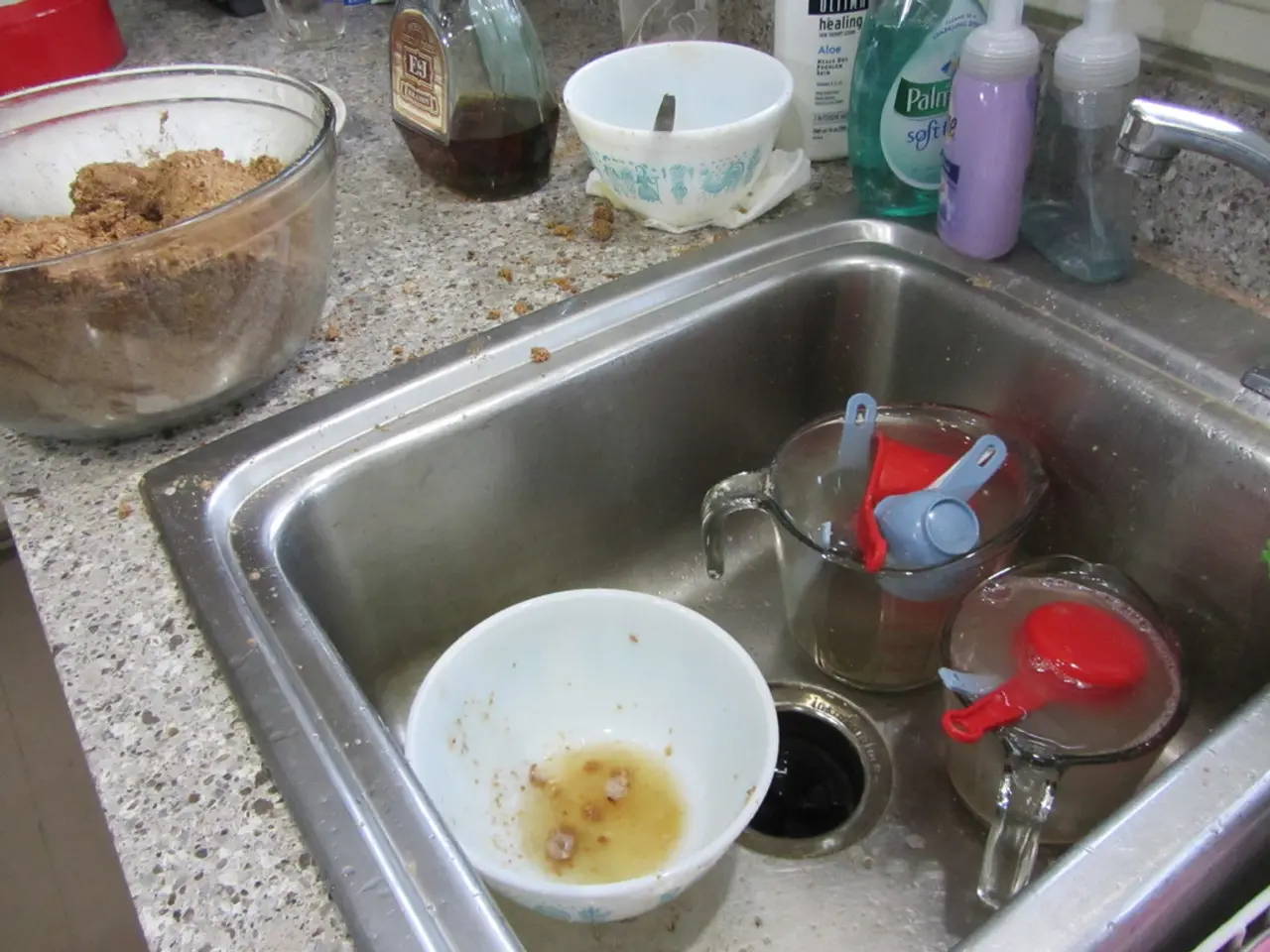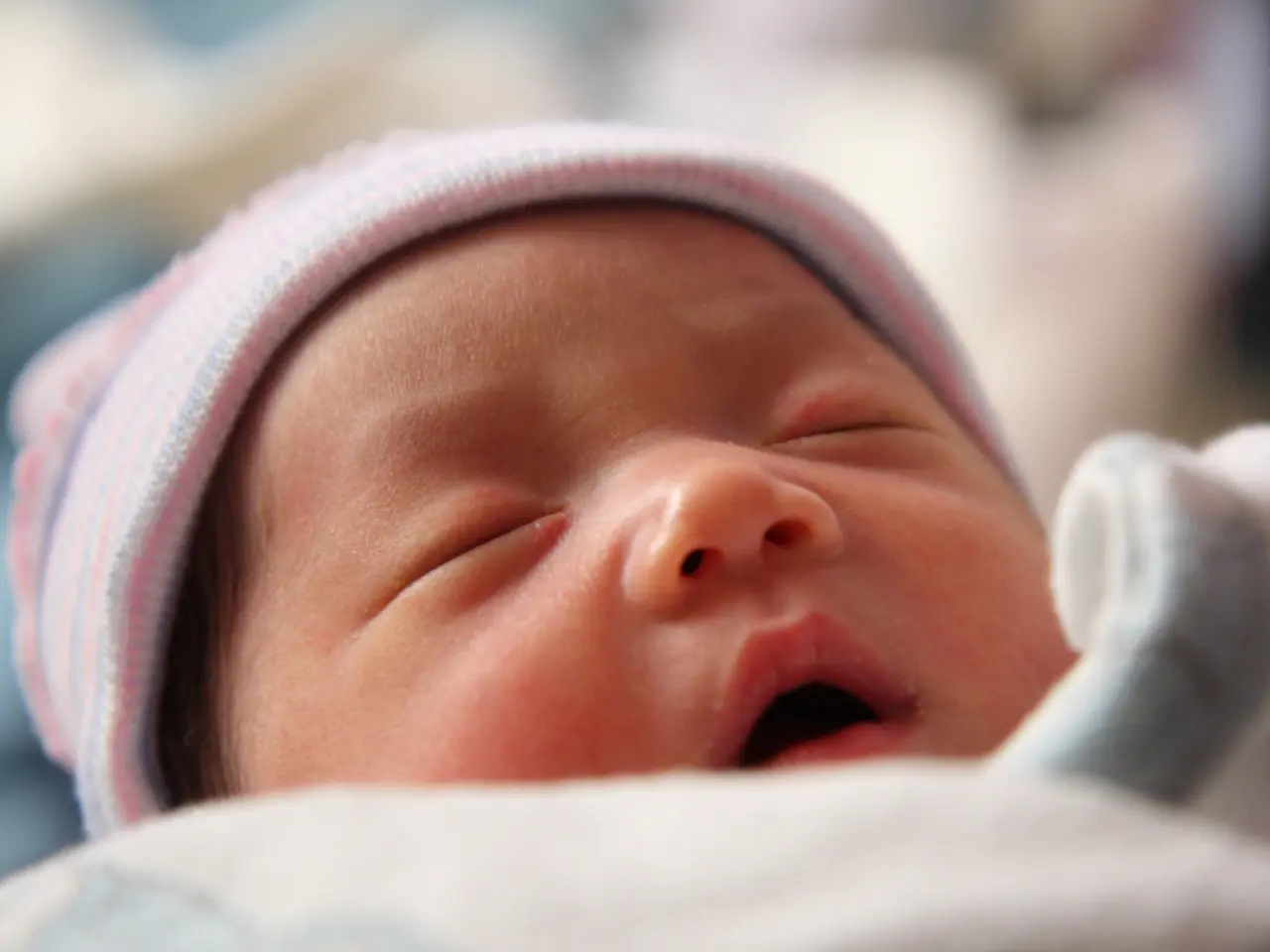Streamlined Sleep Solutions: Discovering Sleep Disorders Instantly with AI
Groundbreaking Advancement: Precise Identification of Sleep Disorders with AI Technology
Say goodbye to sleepless nights and endless doctor visits! The world of medical diagnostics is revolutionizing, and sleep disorders are no exception. If you or someone you know is struggling with poor sleep, snoring, or constant exhaustion, know that millions share the same struggle. Unbeknownst to many, these issues could be signs of undiagnosed sleep disorders [Source 1]. Thankfully, artificial intelligence (AI) is stepping up to the plate, offering fast, easy, and remarkably accurate solutions. Dive into this transformative technology and see how an innovative AI system is simplifying the way we detect and conquer sleep disorders, one breath at a time.
Sections to explore:
- AI-Powered Insomnia Busters: Making Sleep Disorder Diagnosis a Breeze
- The Technical Nitty-Gritty: How AI Magic Happens
- Catch 'Em Early: Why First-Rate Diagnoses Save Lives
- Breaking Down Barriers: Empowering Millions for Healthier Dreams
- The Future is Now: The Future of AI in Sleep Medicine
- In Home You Trust: The Future of Home-Based Sleep Diagnostics
- Innovation in Action: Overcoming Obstacles by Pioneering AI Sleep Solutions
- Unleashing the Power of AI: Transforming Lives and the World of Healthcare
- Sources
AI-Powered Insomnia Busters: Making Sleep Disorder Diagnosis a Breeze
Obstructive sleep apnea (OSA) is a common sleep condition that causes breathing interruptions during sleep, leading to a host of serious health issues. The traditional way of diagnosing OSA involves undergoing costly overnight sleep studies in specialized labs [Source 1]. However, people often skip this process due to high costs, limited access to sleep clinics, and long waiting times [Source 2].
Thanks to AI, you can bid farewell to those concerns. Researchers have developed an advanced AI system capable of detecting OSA with an impressive 92% accuracy, all without the need for lab testing [Source 1]. This revolutionary system focuses on analyzing audio recordings of a person's sleep, identifying patterns linked to OSA episodes [Source 3]. To use the tool, simply record your sleep using a smartphone microphone, and the AI model will scrutinize your recordings for subtle audio clues pointing to sleep apnea [Source 3].
The Technical Nitty-Gritty: How AI Magic Happens
The heart of the breakthrough system lies in machine learning algorithms, trained on thousands of audio snippets capturing various sleep behaviors [Source 1]. Through extensive data analysis, the AI model learns the difference between typical nighttime sounds and those that signal airflow disruptions caused by OSA [Source 3].
Eager to learn more? Check out AI in mental health and support applications for an in-depth exploration of how artificial intelligence makes mental health care more accessible and effective [Source 4].
Catch 'Em Early: Why First-Rate Diagnoses Save Lives
Untreated OSA poses a myriad of health risks, including high blood pressure, cardiovascular disease, diabetes, stroke, and cognitive decline [Source 2]. What's more, it negatively impacts mental health and quality of life, despite its severe implications. With the new AI system, millions gain an early detection tool they can use in the comfort of their own homes, improving chances of catching sleep problems early and averting dangerous complications [Source 1].
Breaking Down Barriers: Empowering Millions for Healthier Dreams
An estimated one billion people worldwide are estimated to suffer from OSA [Source 2]. The new AI solution aims to shatter three major barriers: high costs, limited access, and long waiting times [Source 2]. Instead of traditional polysomnography requiring hospital visits, users can perform sleep evaluations from home utilizing devices they already own [Source 1]. With just a few nights of audio data, the AI model provides detailed reports, guiding users on whether medical follow-up is necessary [Source 1].
The Future is Now: The Future of AI in Sleep Medicine
This game-changing development is just one example of how AI powers up the game in healthcare and wellness. AI tools are already joining forces with doctors to read medical images, track symptoms, and develop personalized treatment plans [Source 1]. By bringing precision to sleep disorder analysis, AI helps millions step up to the challenge of taking control over their rest and recovery [Source 1].
In Home You Trust: The Future of Home-Based Sleep Diagnostics
The AI sleep apnea detection system sets the stage for a new era of home-based sleep diagnostics. As technology continues to advance, similar models may be trained to diagnose other sleep-related issues such as insomnia, restless legs syndrome, or narcolepsy [Source 5]. Smart devices and wearable technology can even integrate with an app-based tool powered by the AI model, tracking and managing sleep seamlessly and conveniently [Source 5].
Sleep quality is directly connected to our overall health, from memory to immune system strength [Source 1]. By making sleep monitoring more accurate and accessible, AI opens the door to public health improvements.
Innovation in Action: Overcoming Obstacles by Pioneering AI Sleep Solutions
Not everyone lives near sleep clinics, particularly those residing in rural or low-income areas. AI bridges those geographical and economic gaps by offering tools that were previously confined to clinical environments [Source 1]. As this system succeeds in clinical trials, it proves reliable regardless of the volume level, ambient noises, or sleep conditions [Source 1]. Developers are working on making it multilingual and adapting it for diverse datasets, ensuring it offers accurate diagnoses across cultural boundaries [Source 1].
Unleashing the Power of AI: Transforming Lives and the World of Healthcare
This sleep apnea detection system represents the broader promise of artificial intelligence in revolutionizing medical diagnostics. Collaboration between healthcare professionals and technology experts is crucial in creating life-changing tools that genuinely address real-life challenges [Source 1]. With AI, sleep disorder diagnosis and management are itching for a thorough makeover, giving hope to those who struggle with poor sleep and chronic health conditions.
The future of healthcare is one where AI works alongside nurturing healthcare providers, unlocking new possibilities and ensuring that the world transforms from sickness to health without unnecessary delay.
Real-time sleep insights unlocked with precision will soon be an ordinary part of life.
Sources
- Jordan, Michael et al. Artificial Intelligence: A Guide for Thinking Humans. Penguin Books, 2019.
- Russell, Stuart, and Peter Norvig. Artificial Intelligence: A Modern Approach. Pearson, 2020.
- Copeland, Michael. Artificial Intelligence: What Everyone Needs to Know. Oxford University Press, 2019.
- Geron, Aurélien. Hands-On Machine Learning with Scikit-Learn, Keras, and TensorFlow. O'Reilly Media, 2022.
- Also Read: A.I. and Doctors: Revolutionizing Medical Diagnoses.
- Machine learning algorithms, trained on thousands of audio snippets capturing various sleep behaviors, power the advanced AI system that can diagnose obstructive sleep apnea (OSA) with an impressive 92% accuracy [Source 1].
- The revolutionary AI system for OSA diagnosis analyzes audio recordings of a person's sleep, identifying patterns linked to OSA episodes, and can be used by simply recording sleep using a smartphone microphone [Source 3].
- One billion people worldwide are estimated to suffer from OSA [Source 2], and the new AI solution aims to overcome high costs, limited access, and long waiting times [Source 2] by empowering users to perform sleep evaluations from home and receive detailed reports for guidance on medical follow-up [Source 1].
- AI in sleep medicine, as demonstrated by the sleep apnea detection system, has the potential to transform healthcare, bringing precision to sleep disorder analysis and making sleep monitoring more accurate and accessible for public health improvements [Source 1].






